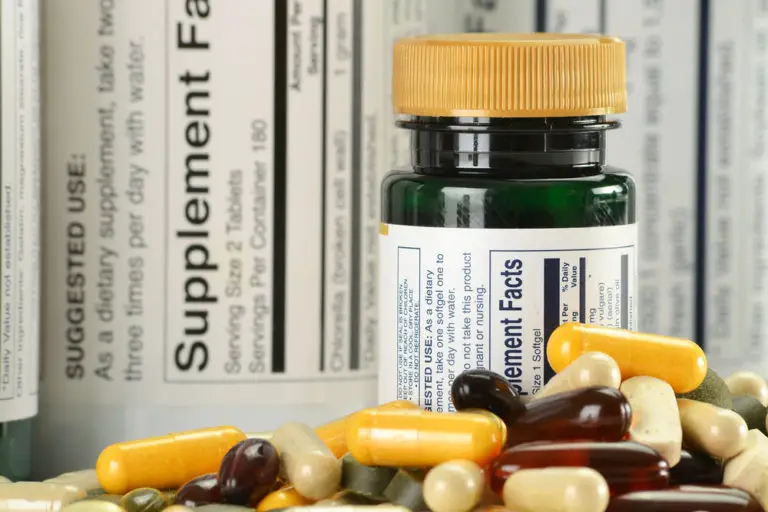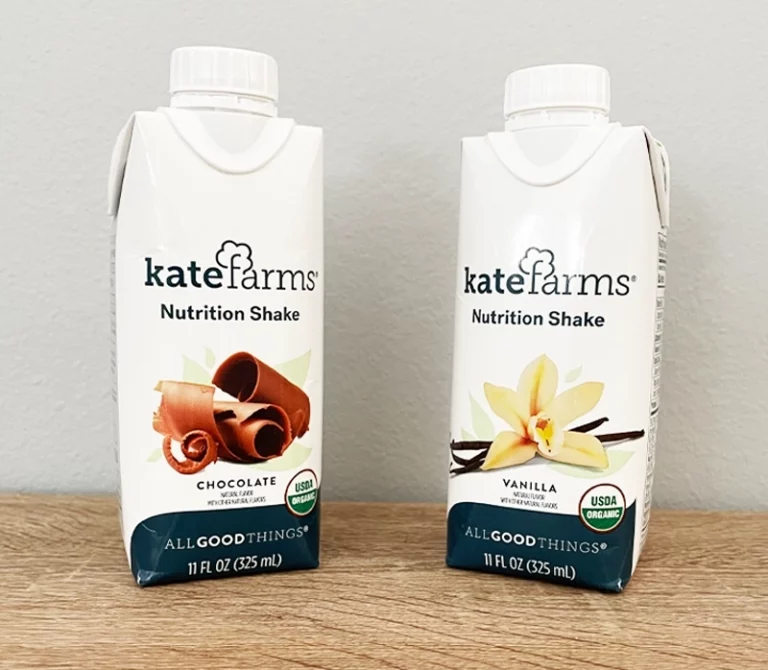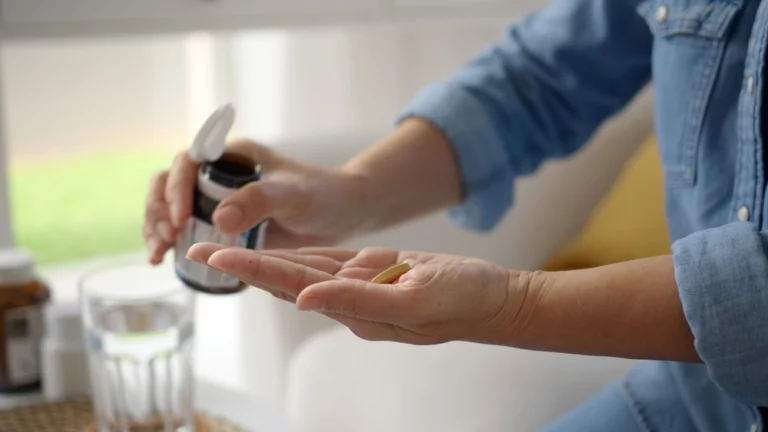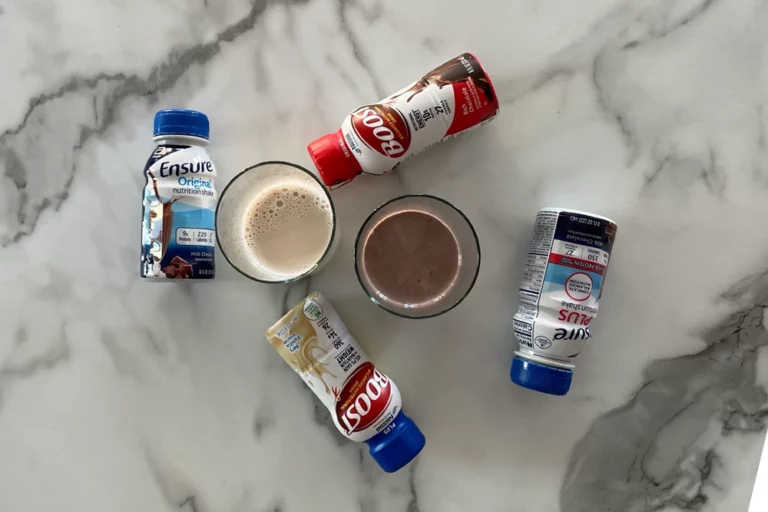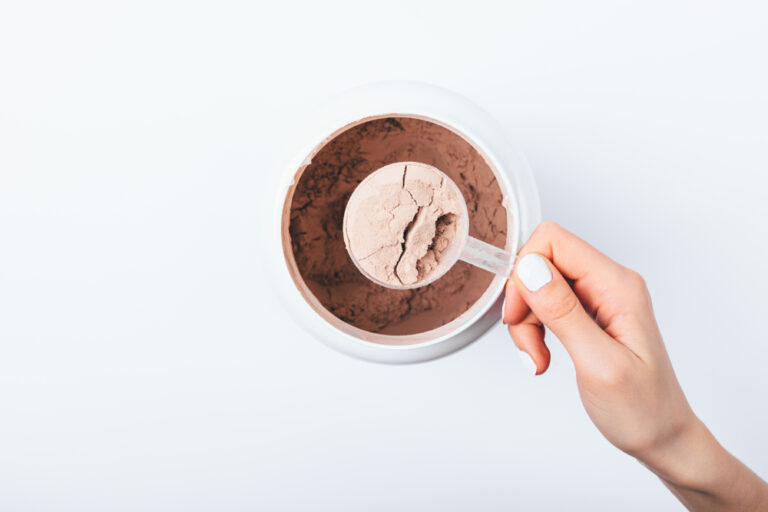Creatine for Depression: Does It Work?
We include links to products that we think our readers will find useful. If you buy through links on this page, we may earn a small commission. Learn about our process.
Creatine is a popular sports supplement known for its ability to increase muscle size, strength, and power.
However, increasing evidence suggests creatine plays a role in regulating mood and may improve symptoms of depression.
This article explains the benefits of creatine and whether it’s worthwhile to supplement with creatine for depression.

What is creatine?
Creatine is a compound produced naturally by your body from three amino acids — the building blocks of protein.
It’s also found in animal products, namely red meat and seafood.
Creatine is stored primarily in skeletal muscles with small amounts also found in the brain (1).
The body needs to replenish 1-3 grams daily to maintain normal creatine stores. About half of this daily need is obtained from the diet while the other half is produced by the body (1).
The body has a much larger storage capacity for creatine than what can naturally be obtained from food or produced by the body.
This is where creatine supplementation comes into play.
Creatine supplementation increases the body’s creatine stores to higher or optimal levels, which is especially beneficial for enhancing exercise performance.
This is because creatine increases the available fuel to power adenosine triphosphate (ATP), the body’s energy currency of the cell.
With more fuel to power ATP, you can lift heavier weights, perform more repetitions, and delay muscle fatigue, which translates to gains in muscle size, strength, and power (2, 3, 4, 5).
As such, many athletes and bodybuilders supplement with creatine for these benefits.
Vegans and some vegetarians tend to experience greater gains with creatine supplementation since they have lower creatine stores due to avoiding red meat and seafood (1).
Can creatine help with depression?
Creatine supplementation is a popular strategy among athletes and bodybuilders for increasing exercise performance.
However, increasing evidence suggests that creatine plays a role in regulating mood and offers protective effects against depression.
Recall that while creatine is stored primarily in the skeletal muscles, small amounts are also stored in the brain, specifically the prefrontal cortex.
The prefrontal cortex plays a central role in controlling cognitive functions, emotions, and mood.
Here creatine is thought to enhance energy metabolism, regulate neurotransmitters involved in mood regulation like dopamine, and reduce oxidative stress (6, 7).
Through these actions, creatine is believed to offer protective effects against depression as lower concentrations in the prefrontal cortex have been associated with depressive symptoms (6).
One study found that adults and older adults — especially females — with the highest creatine intakes (0.70-3.2 grams) were 31% less likely to have depression compared with those with the lowest creatine intake (0-0.26 grams) (8).
These results were found after controlling for risk factors of depression, such as age, education level, access to routine healthcare, financial status, and physical activity level.
Although this study was observational and cannot establish a causal relationship, it may explain why vegetarians and vegans are at a higher risk of depression compared with their omnivore counterparts (9, 10, 11, 12).
However, it’s possible that those who consume low amounts of dietary creatine also consume less of other nutrients found in red meat and seafood that may also increase the risk for depression, such as omega-3 fatty acids, vitamin D, and zinc.
In either case, several small randomized controlled trials have shown improvements in depressive symptoms with creatine when supplemented in the range of 2–10 grams daily for 4–8 weeks (7).
Creatine has also been shown to enhance the effectiveness of antidepressant medications and increase the response to them in those who are resistant to their effects (7, 13, 14, 15).
Collectively, these results suggest that creatine has anti-depressant effects and may improve the effectiveness of anti-depressant medications, potentially allowing for a lower medication dose.
Is creatine safe?
Creatine is remarkably safe and is unlikely to cause negative side effects.
However, creatine is thought to increase levels of its byproduct, creatinine, which can be an indicator that your kidneys aren’t working well.
But, creatine has not been shown to harm the kidneys in doses ranging from 4-20 grams and when taken for five days to more than two years (16, 17).
Studies have also shown that creatine supplementation has no effect on kidney function in people with type 2 diabetes, a leading cause of kidney failure (17).
Besides, creatinine alone is a poor indicator of kidney function since it’s influenced by several other factors (18).
However, creatine has been shown to increase fluid retention and cause weight gain in some people when supplemented in large doses.
This fluid is retained inside the cell so it won’t lead you to look puffy or soft.
But this effect is temporary and the long-term increases in body weight from creatine supplementation come from gains in muscle mass — not fluid — when combined with good nutrition and a good progressive training program (19).
If you’re concerned about fluid retention, you can supplement with smaller doses in the range of 3-5 grams per day (20).
Should you take creatine for depression?
Several studies have shown that creatine supplementation improves symptoms of depression.
However, these studies are small and some are open-label, meaning the study participants knew what they were taking, which could influence the results.
As such, additional research is necessary before a strong conclusion can be made about the potential antidepressive effects of creatine.
But, there is little risk — and cost — in trying creatine to see if it helps you.
However, you shouldn’t forgo traditional treatments for depression like talk therapy or medications, if they have been recommended by your healthcare provider.
Instead, it may be best to try creatine in combination with these treatments — either talk therapy, medications, or both — while implementing other lifestyle changes that can help with depression, such as exercising regularly, eating a nutritious diet, and avoiding alcohol.
The best and most studied form of creatine is creatine monohydrate (1).
Creatine monohydrate is widely available and is also the most cost-effective compared with other forms like creatine HCl.
The creatine monohydrate in most supplements is produced from non-animal compounds and does not contain any animal by-products making them vegan-friendly (21).
In looking for a creatine monohydrate supplement, choose brands that have undergone third-party testing to ensure potency, purity, and quality or that use a branded high-quality form of creatine monohydrate like Creapure.
Here are some high-quality creatine monohydrate supplements:
These products provide creatine monohydrate in a powder form, which mixes easily with water or your favorite beverage.
You can also purchase creatine monohydrate in capsule form.
However, these products tend to be more expensive, and you would need to take several capsules daily to get an effective dose.
The time in which you take creatine doesn’t make a difference as long as you remember to take it daily.
The bottom line
Creatine is a popular sports supplement that may have benefits beyond the gym.
Observational research suggests a link between depression and low dietary intakes of creatine, and small studies have shown improvements in depressive symptoms with creatine supplementation.
However, more research is necessary before any strong conclusions can be made about creatine for depression.
Still, creatine may be worth trying — alongside other therapies for depression — as it’s a relatively inexpensive and safe supplement.

